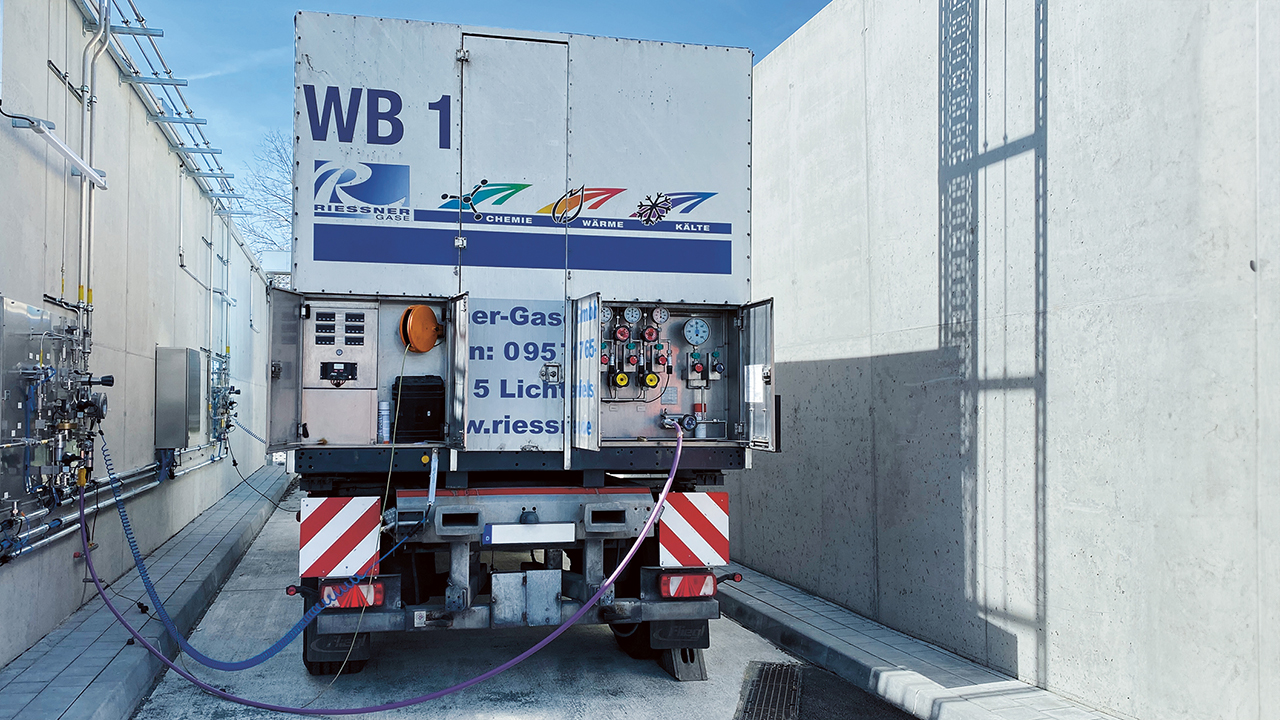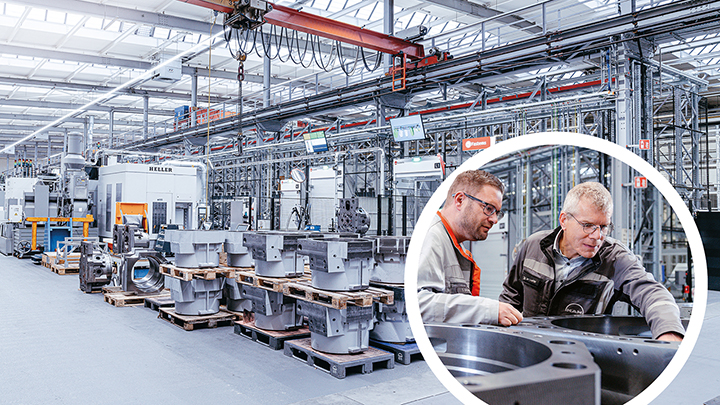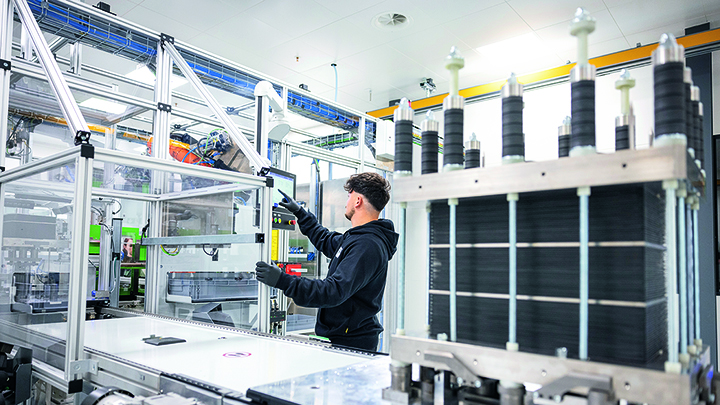In a few years, our engines will be running on fuels like methanol and hydrogen, so we are already preparing our testbeds for the change.
The admixture of 25 percent H2 for power plant engines is already possible today and the plan is to test the first single-cylinder engine 100 percent with this fuel from 2024.
Tough safety requirements
It is mainly MAN Energy Solutions employees working on the testbed projects and the construction site, as Kilian Stegmair regards it as important that the qualifications for handling the new fuels are built up in the company already before the first engine test runs. The safety requirements imposed by the licensing authority are tough and already making themselves felt on the construction site. The stand for the container is being enclosed within concrete walls, supply lines are double-walled, an extinguishing system has been installed. “These measures are absolutely necessary,” says Kilian Stegmair, as: “Both methanol and hydrogen burn invisibly among other things, which means that, if the fuel were to escape undetected owing to a leak and ignite, the flame could not be seen. This is just one of the challenges that we have to learn how to deal with on the testbeds and later on in the field.”
Development alliance for faster results
But the learning curve is steep, and not just because methanol operation in particular can readily be approached via retrofit projects. A development alliance between Marine, PrimeServ, Power and Engine Development coordinated by Test Systems has been in existence for some time now. The aim is to pool all testbed activities and make use of synergies with a view to achieving practical implementation faster. This is important, as the first complete retrofit engine will go on the testbed with 85 percent methanol as early as April 2024. And there are many more project orders – our four-stroke engines are undergoing a transformation directly heading towards CO2-neutral operation.

Explore more topics
Designing the engines of the future
The time is ripe for sustainable engine solutions in the maritime sector. The International Maritime Organization (IMO) has pledged to halve carbon emissions by 2050, while pursuing efforts to phase fossil fuels out completely. Research has ramped up on substitute solutions, such as hydrogen, ammonia or methanol – all of which can be either zero-carbon or carbon-neutral in the future. In their quest to develop a hydrogen-fueled internal combustion four-stroke engine, development engineers Sebastian Rösler and Christian Friedrich are part of MAN Energy Solutions’ drive for decarbonized engine solutions.
-

Zurich compressor technology minimizes footprint
MAN ES is supplying two electric HOFIM® compressor systems for gas storage facilities in Italy – Zurich’s state-of-the-art compressor technology will help to reduce emissions.
-

An important investment in the Augsburg site
A state-of-the-art system for processing cylinder heads is currently being put into operation in Augsburg – a further contribution to securing the site’s future.
-

Milestone for green hydrogen economy
Quest One – formerly H-TEC SYSTEMS – is going to manufacture PEM electrolysis stacks in Hamburg using highly automated series production. These will play a key role in ramping up the hydrogen economy.
